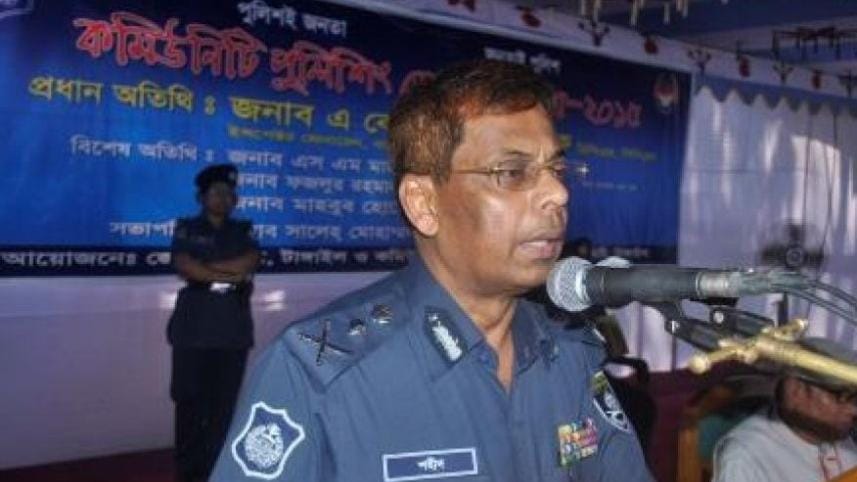Opinion: IGP’s big leader formula

Inspector General of Police (IGP) AKM Shahidul Haque Sunday criticized activists of the ruling party for blocking the Chittagong-Cox’s Bazar highway demanding release of an accused Awami League leader terming such activities as shameful.
Referring to chaos that followed Saturday’s arrest of a local Awami Leader named Jahangir Alam, the IGP also observed that such activities diminish public support for the government and was demeaning to the rule of law.
He urged the leaders of the ruling party not to support their men in such activities and let the police act as per the law in such cases.
Although these observations are too political for a public office holder, the IGP was still within reasons.

“One cannot become a big leader if he had not gone to jail,” said the IGP.
Now that’s a revealing speech. The IGP has not only revealed how politicised he was, he also revealed the nexus between the cops and lawbreaking ruling party men.
As the chief of the police, the IGP should represent the highest professional and moral standard of his force. Instead when he is expressing concern that “such activities diminish public support for the government”, we see the shadow of a politician. This statement should come from a politician—not the top cop.
He urged the ruling party to let the police act as per the law, but then he went suggesting the ruling party how best to handle the case of an arrested leader—that the party could urge the police not to oppose bail and then the cops could stay relaxed. Where is law here? Why should the IGP suggest how to ‘negotiate’ with the cops so that the arrested person can secure bail?
And then he made the most philosophical remark that one cannot become a big leader if he had not gone to jail. He is not only blurring the difference between criminals and politicians—but also suggesting a fantastic formula of becoming a ‘big leader’.
The IGP must have taken his job lightly. He is professing political negotiation to solve a problem and not rule of law. If this is how he wants to ensure rule of law, he cannot expect his sub-ordinates to be professional.



 For all latest news, follow The Daily Star's Google News channel.
For all latest news, follow The Daily Star's Google News channel.
Comments